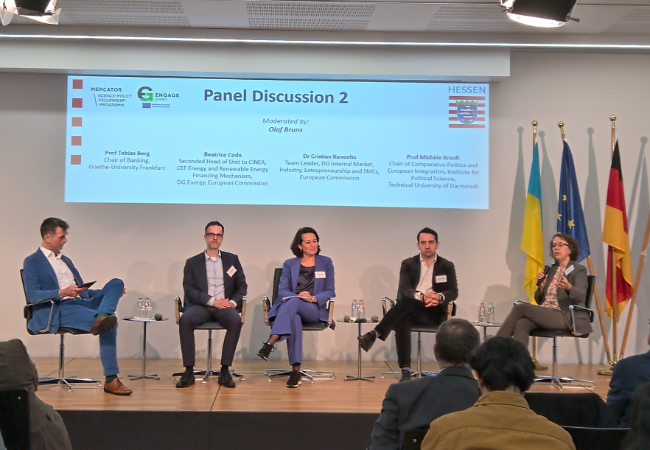- GU Home
- Policy Plattform
- ENGAGEgreen
- Events
Events
Upcoming Events
24 April 2024, Granada, Spain
Science and Society: The case of French research policy
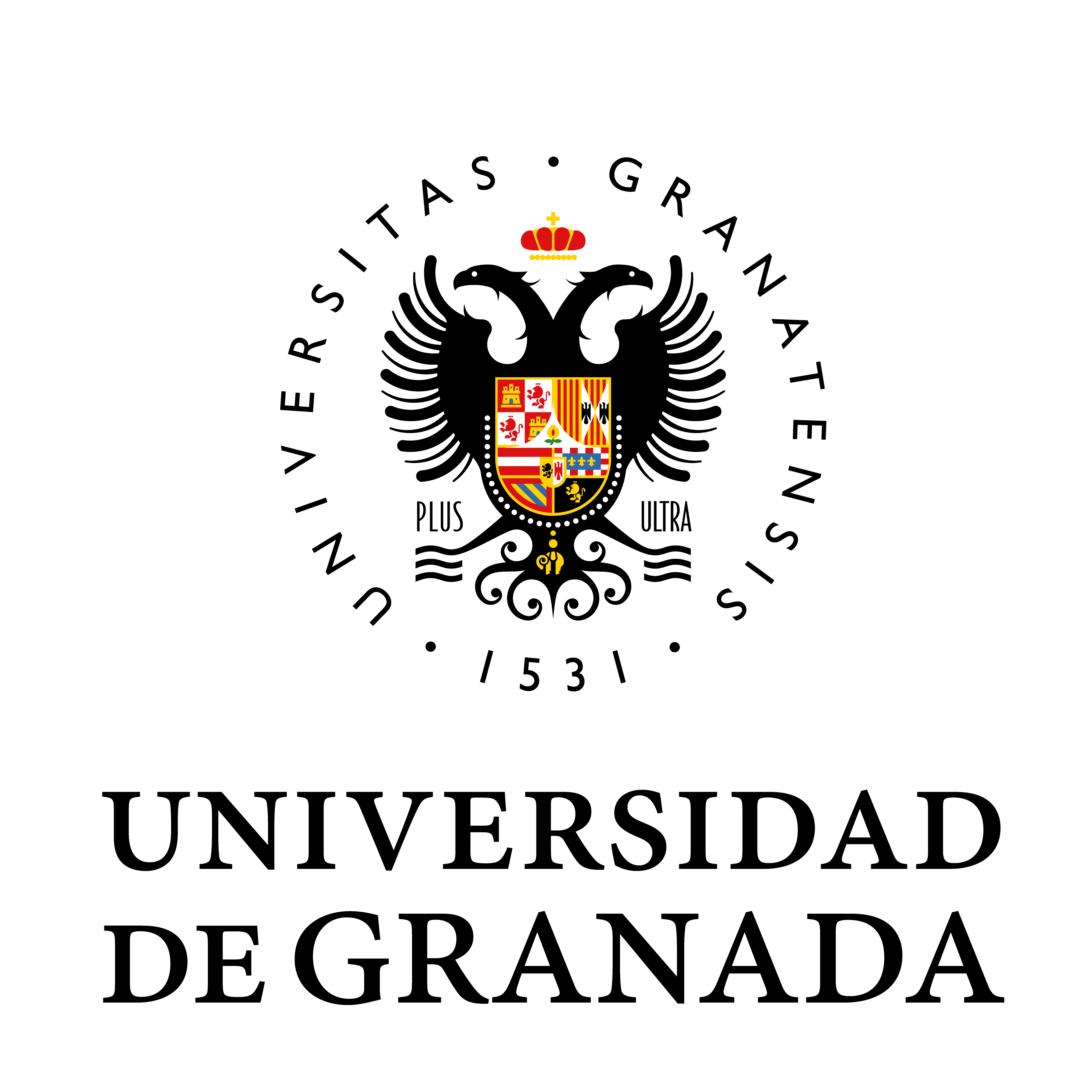
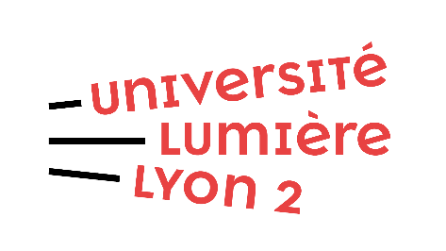
The University of Granada, through MediaLab UGR, in collaboration with the Erasmus Plus EngageGreen project, is pleased to announce the organisation of the seminar "Science and Society: the case of French research policy" presented by Florence Belaën.
Wednesday, 24 April 2024, from 9 to 11 AM, hybrid event:
- In-person: at the V Centenario building of the University of Granada, in the Impronta Space of MediaLab UGR.
- Virtual: https://meet.google.com/vrz-qush-yji through the platform yosigo.ugr.es.
The online broadcast will be recorded and uploaded to YouTube on the MediaLab UGR channels at the University of Granada.
The seminar will be presented by Florence Belaën, a prominent professional at the intersection of science, culture, and society, from Université Lumière Lyon 2. The session will focus on the connection between science and society, referencing the evolution of research policy in France, especially how these policies are promoting a more effective integration of science with the needs and expectations of society. This topic is particularly relevant at a time when trust in academic knowledge faces significant challenges and the need for a fruitful dialogue between science and society has never been more critical.
This seminar is an exceptional opportunity for academics, students, and professionals interested in the social impact of science and technology. For more information and registration, please visit the MediaLab UGR website.
Profile of Florence Belaën
Past Events
10 April 2024
Training Session for Policymakers in Olomouc Region
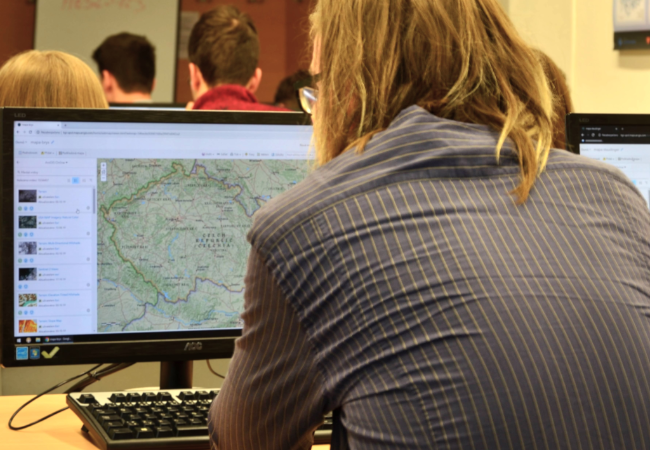
On 10 April, a training session on data presentation and visualisation in ArcGIS Online was organised by the Department of Geoinformatics at Palacký University Olomouc. The training provided policymakers from the Olomouc Region and the Statutory City of Olomouc with a new set of skills in presenting open data by introducing new forms of visualisation. The participants (16 in total) also learned about effective alternatives for internal communication. The software used was ArcGIS Pro and Esri Storymaps. The research team at UP gained valuable insights, and the exchange of community knowledge during the training enhanced new perspectives in geoinformatics.
Picture: Palacky University Olomouc
12 March 2024, Brussels, Belgium
A new Boost for Europe's Green Transition with R&I
KEY TECHNOLOGIES FOR OUR FUTURE
With the 2023 revision of the European Strategic Energy Technology (SET) Plan, the European Commission has identified the financial, political and societal challenges that need to be addressed in order to promote the development and establishment of key technologies for the Green transition. The promotion of new technologies is a cross-cutting task for EU institutions, national governments, businesses and science alike.
The event brings together researchers from the technical, economic and social sciences with representatives of the European Commission to discuss technical innovations for green transition and the political and financial frameworks for the developement and application of key technologies.
28 February 2024, Olomouc, Czech Republic
Discussion: Identification of internal issues in the process of “opening” the data
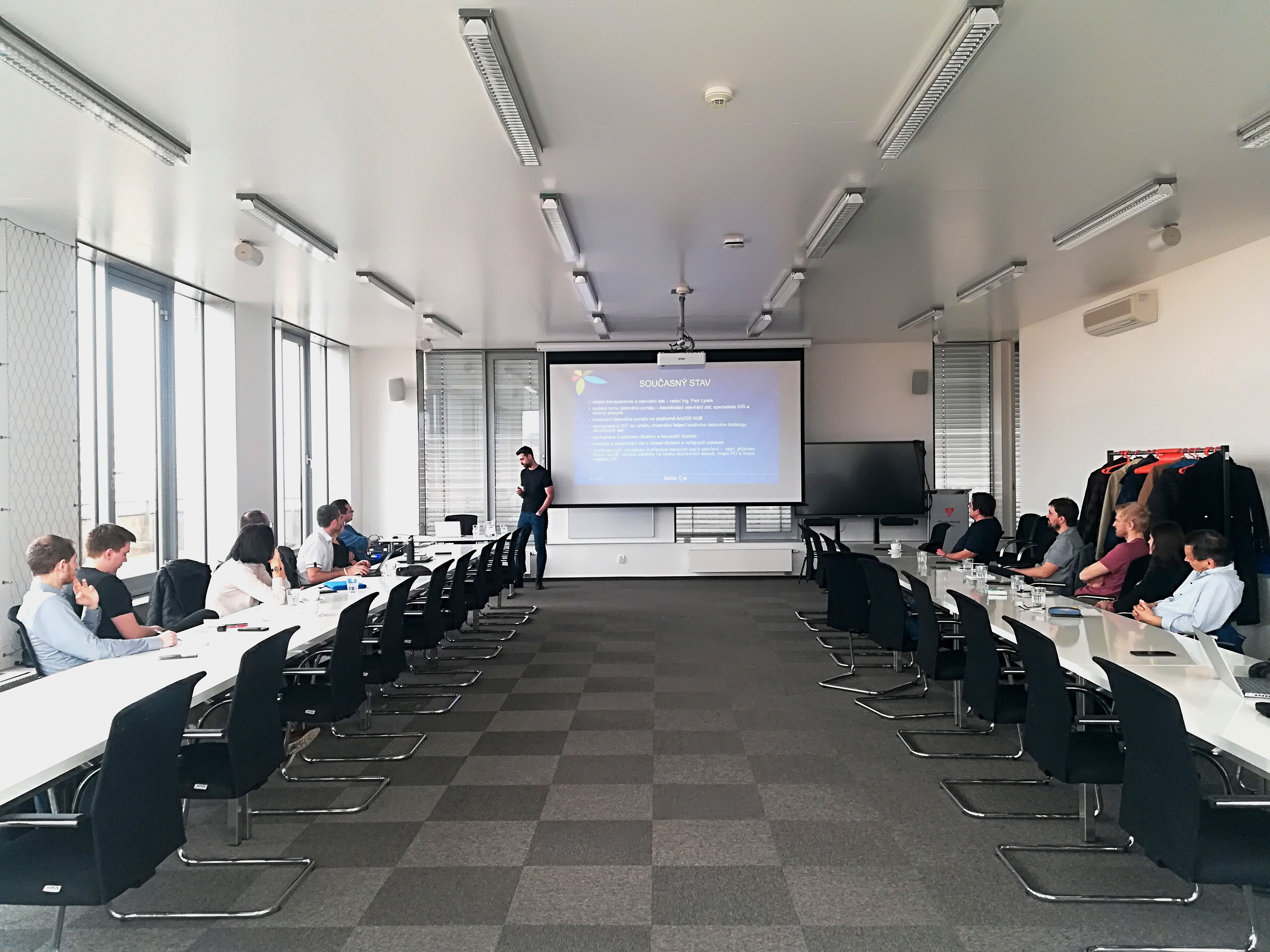
On 28 February, the Pairing Scheme at Palacký University Olomouc was officially launched with a discussion on the process of 'opening' the data and its internal issues, specifics, risks, and expectations both within the university and among the public institutions involved in the project. The overall aim of the discussion was to understand the current practices regarding the acquisition and processing of different types of data, share experiences, and set common mid-term goals. The discussion was opened by presentations from UP, Olomouc Region, and Statutory City of Olomouc, followed by a brainstorming session.
16 February 2024, Treviso, Italy
Bridging Sustainability and Artificial Intelligence
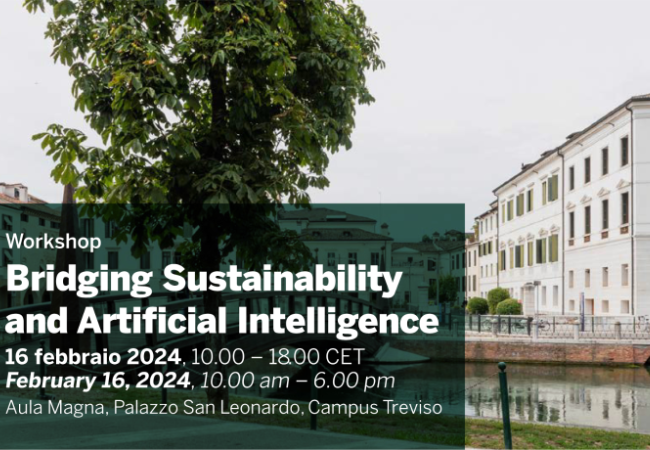
The workshop provided a platform for reflecting on various aspects of
sustainability issues and exploring innovative tools that facilitate the
analysis of their complexity. The objective was to tackle challenges arising from
the economy and society while assessing the potential contributions that new
tools can offer.
The event was divided into two parts. In the morning, there were contributions from the economic and institutional sectors related to the
local area. In the afternoon followed the presentation of
scientific contributions.
Further information can be found in the programme and on the website.
8 February 2024, virtual event, Spain
Presentation of SIMIL Programme and ENGAGEgreen
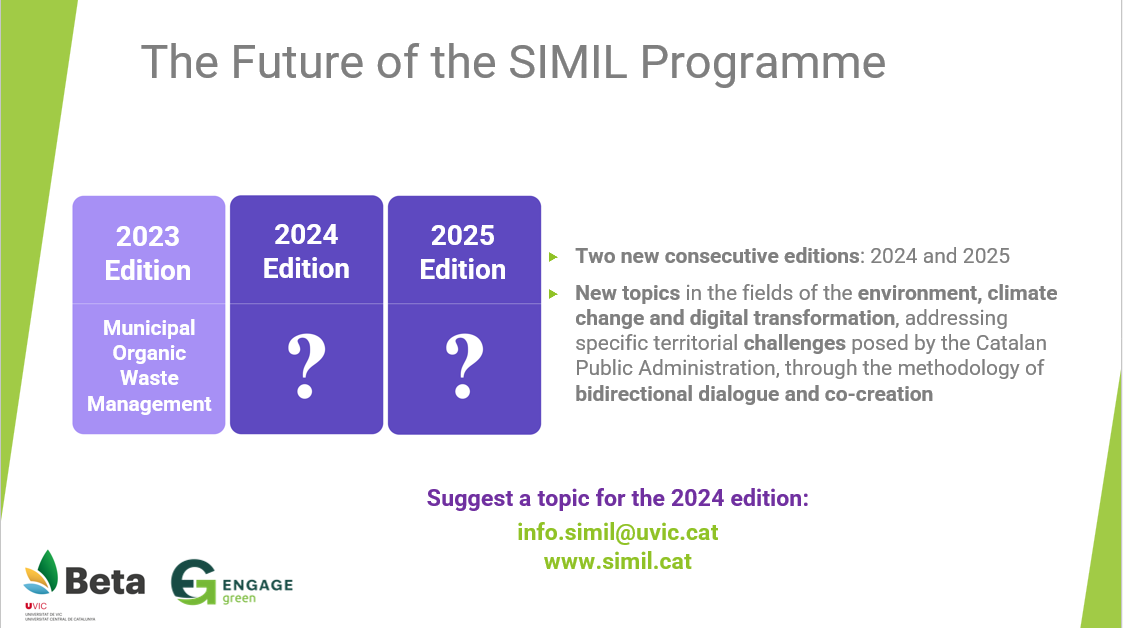
The BETA Technological Center of UVIC-UCC was invited to present our Pairing Scheme - the "SIMIL Programme" - during the online final event of the project ECOPAP. This project, managed by the CREDA research center is focused on promoting solutions that help to face the challenge of managing plastic waste from the agri-food sector. In this online event BETA presented the methodology of the Pairing Scheme and results of the 2023 edition on the topic of municipal organic waste management, but also introduced the upcoming ENGAGEgreen Pairing Schemes on new topics in 2024 and 2025.
24 - 26 January 2024
Kick-off meeting at the Université Lumière Lyon 2
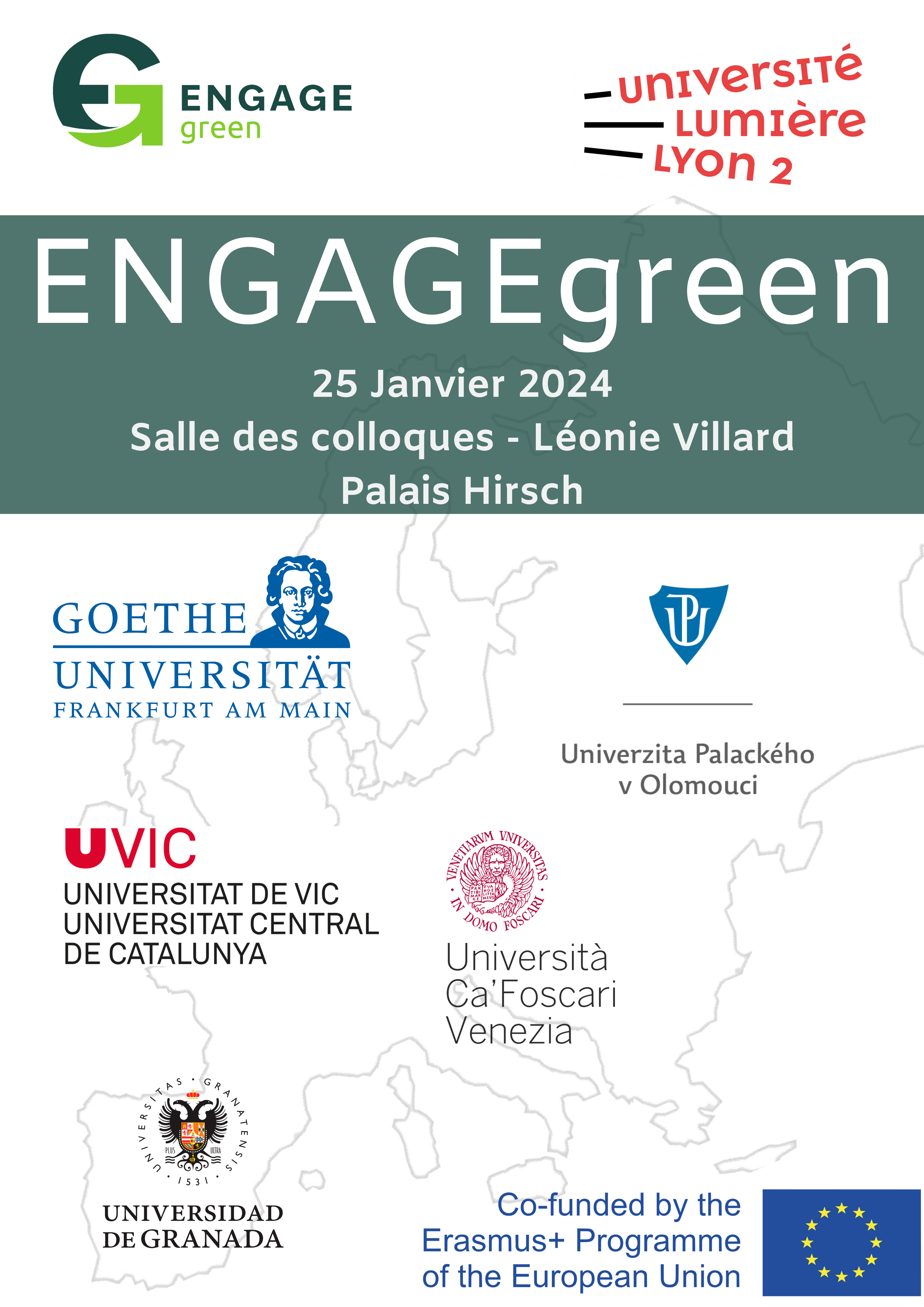
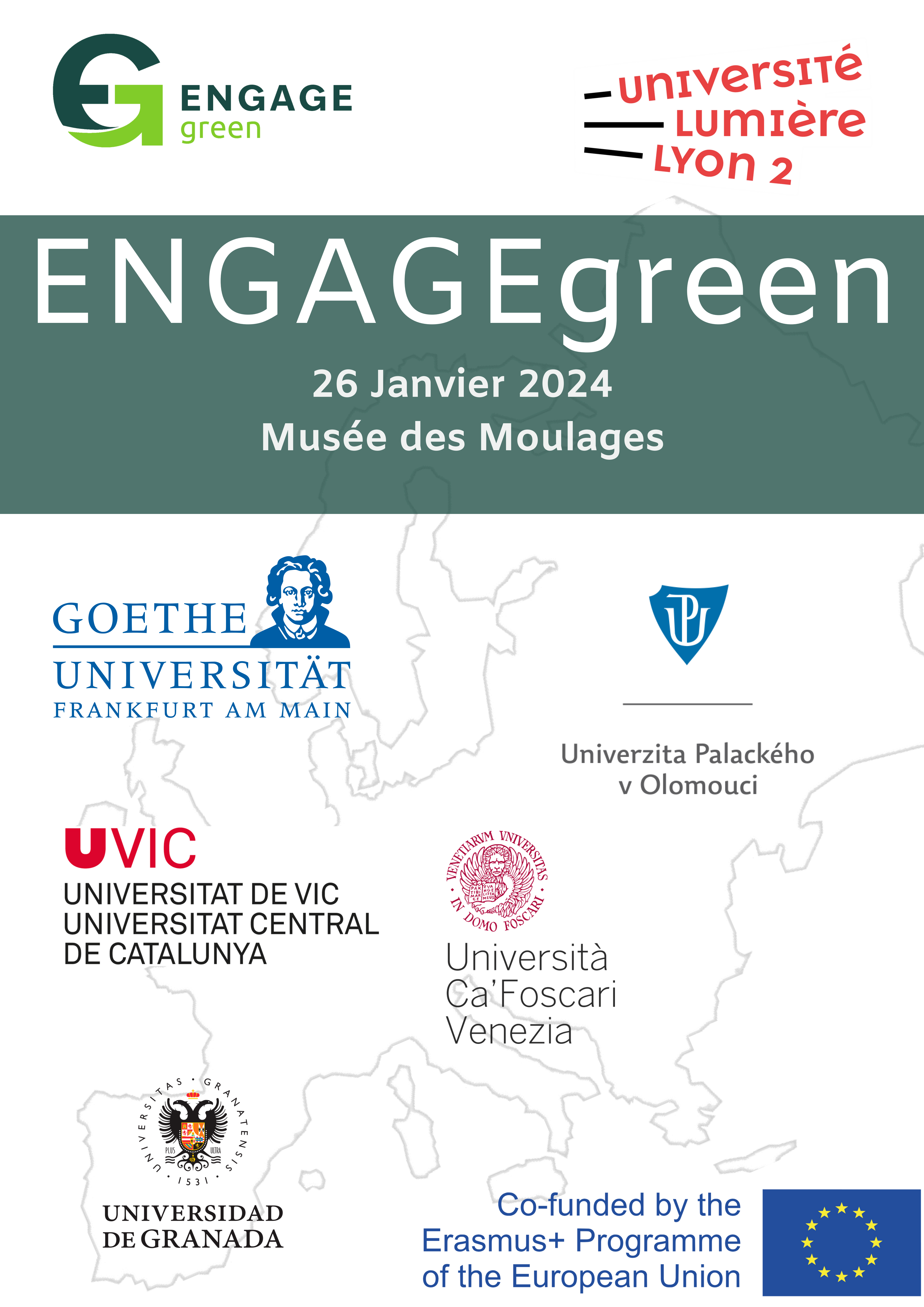
19 January 2024
Early-career researchers meet policymakers
On 19 January 2024, 32 doctoral and post-doctoral researchers from various academic disciplines from the Rhine-Main-Universities met policymaking professionals. Seven policymaking professionals from the Darmstadt Regional Council, the German Foreign Federal Office, the Hessian Ministry of Economics, the Hessian Ministry of Environment, the State Chancellery Rhineland-Palatinate, the Ministry of Finance of Rhineland-Palatinate, and the Ministry of Economics and Labour from Baden-Württemberg informed the early career researchers about their need for academic expertise, about knowledge-exchange formats, and about how academic expertise can better reach policymaking professionals in ministries. The policymaking professionals also discussed how research experience can help early-career researchers start professional careers in the public sector.

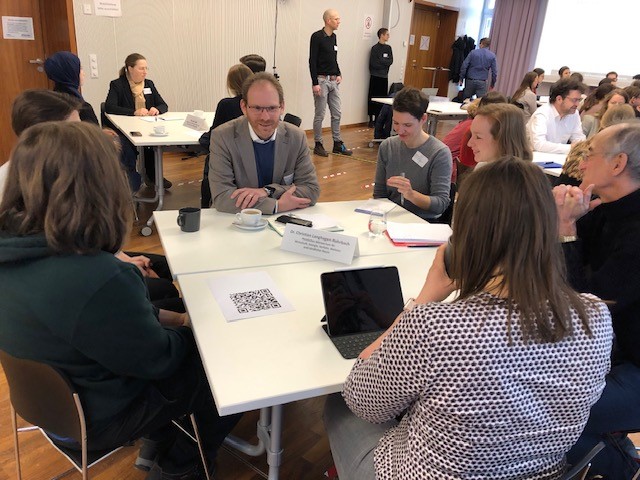
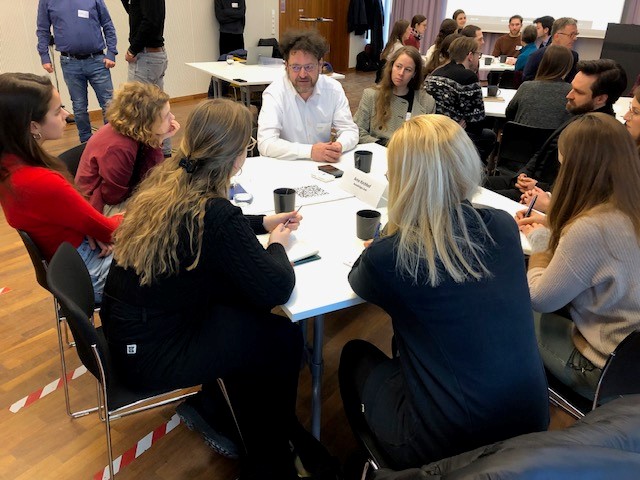
- Aktuelles und Presse
- Pressemitteilungen
- Öffentliche Veranstaltungen
- Uni-Publikationen
- Aktuelles Jahrbuch
- UniReport
- Forschung Frankfurt
- Aktuelle Stellenangebote
- Frankfurter Kinder-Uni
- Internationales
- Outgoings
- Erasmus / LLP
- Goethe Welcome Centre (GWC)
- Refugees / Geflüchtete
- Erasmus +
- Sprachenzentrum oder Fremdsprachen
- Goethe Research Academy for Early Career Researchers
- Forschung
- Research Support
- Forschungsprojekte, Kooperationen, Infrastruktur
- Profilbereich Molecular & Translational Medicine
- Profilbereich Structure & Dynamics of Life
- Profilbereich Space, Time & Matter
- Profilbereich Sustainability & Biodiversity
- Profilbereich Orders & Transformations
- Profilbereich Universality & Diversity
